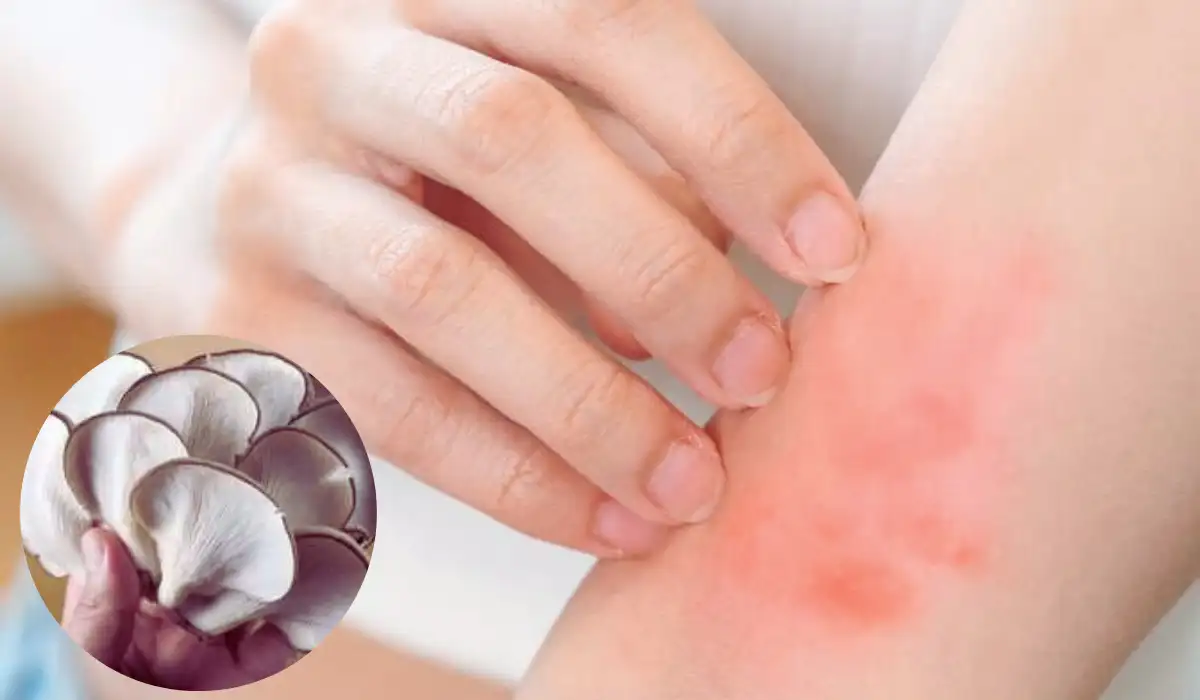Mushrooms are nutritious vegetables that fall under the favorite list of many people. Its nutritious value and taste have increased its popularity among people. However, mushrooms may also cause allergic reactions in some people. Even though the allergic reactions are mild in most people, they can be hazardous and fatal in others.
What Is Mushroom Allergy?

Mushroom allergy is an allergic reaction among people caused by the consumption of all varieties of mushrooms. Even though mushrooms are popular due to their taste and health benefits, many people are mushroom-intolerant.
Eating them or inhaling their spores can cause an allergy. Mushroom allergy is divided into three types: allergic reactions, intolerance, and poisoning.
Intolerance is the least problematic type. It only makes people slightly ill. The allergic stage produces immediate symptoms and difficulties, whereas poisoning is the worst type. Poisoning can create dangerous reactions, which can be fatal to their health.
Causes of mushroom allergy
The body’s perception of mushroom proteins as alien is the main cause of mushroom allergies. As a result, the immune system releases IgE antibodies to fight the alien proteins, which causes the production of histamine. Histamine release has been linked to several of the mushroom allergy symptoms.
Mushroom allergy symptoms
Different mushroom species, ranging from Shiitake mushrooms to button mushrooms, are capable of creating various allergic symptoms in people. Some of the common mushroom allergic symptoms are:
- Skin irritation, rashes, and hives are common among allergic people after the consumption of mushrooms.
- Some people also reported swelling of the throat, lips, and mouth.
- Swelling of the throat can lead to breathing difficulty.
- A chain reaction of symptoms such as a sudden drop in blood pressure levels, fainting, and shortness of breath can occur in anaphylaxis or severe allergic conditions.
- Inhaling mushroom spores can irritate the upper respiratory tract, resulting in watery eyes and a runny nose.
- Inhaling mushrooms can also initiate wheezing.
- It is also possible to have stomach problems like bloating, cramps, vomiting, diarrhea, and nausea as mushroom allergy symptoms.
Diagnosis of mushroom allergy
Observing the allergy’s symptoms after consuming mushrooms is the most common way to diagnose a mushroom allergy.
A food allergy test is conducted for a more precise diagnosis. A tiny quantity of the mushroom protein is injected into the skin during this test. The patient’s test results for a mushroom allergy are positive if any redness or irritation is noted. The doctors should be ready to handle any unfavorable or adverse reactions during the test.
Treatment of mushroom allergy
- An antihistamine should be given to the patient soon after an allergic reaction is diagnosed to ease their discomfort from the mushroom allergy.
- During severe symptoms, a steroid will be helpful.
- If there is a respiratory allergy to mushrooms, immunotherapy can be beneficial.
- In the event of an allergic reaction, paramedic support and an instant injection of epinephrine to relax the respiratory tract are required.
Home remedies for mushroom allergy Symptoms
Mild allergic symptoms can be alleviated using some of the home remedies, such as:
- Vitamin C: A natural antihistamine, Vitamin C will help reduce the inflammation and rashes caused by allergic reactions. It can be consumed through vitamin C supplements or vitamin C-rich foods such as citrus fruits, strawberries, broccoli, and kiwi.
- Aloe Vera: Aloe vera possesses anti-inflammatory qualities that aid in relieving minor allergic reaction-induced skin discomfort. The afflicted area can be soothed by applying aloe vera gel.
Prevention against the allergy
Allergies are erratic and can affect anyone at any time. For example, a person who has been eating mushrooms for years without experiencing any negative side effects may suddenly become allergic to them at any time.
Once a mushroom allergy is detected, one should stay away from mushrooms and other goods made from mold, such as yeast.
Certain packaged foods, including sour cream, dried fruits, and alcohol products like wine and beer, sour milk, cheese, pickled meat, and fish, may also elicit a similar reaction. These items should be taken in small amounts, with caution.
To further prevent allergies, always keep some anti-allergy medications on hand. It is possible to avoid upper respiratory tract inflammation by using nasal steroids.
Tips
- It is better to avoid mushrooms from the diet if a person is prone to allergies.
- As the spores of the mushrooms are as allergic as their consumption, it is advisable to avoid exposure to them.
- To prevent the growth of fungi and molds, clear all the dark and cluttered areas surrounding the allergic person.
Also Read: What Are The Signs Of A Weak Immune System? Tips To Enhance Immunity!
Conclusion
Even though mushrooms possess numerous health benefits and nutritional value, they can trigger allergic reactions in some people, ranging from mild symptoms to severe fatal effects. A prompt diagnosis is essential for the better treatment of the allergy.
It is advisable to completely avoid exposure to mushrooms if any allergic symptoms are detected. Proper preventive measures and treatment should be taken to control the mushroom allergy symptoms.
Reference
- Czarnecka AB, Kreft B, Marsh WC. Flagellate dermatitis after consumption of Shiitake mushrooms. Postepy Derm Alergol 2014;31:187–90.
https://www.ncbi.nlm.nih.gov/pmc/articles/PMC4112260/







